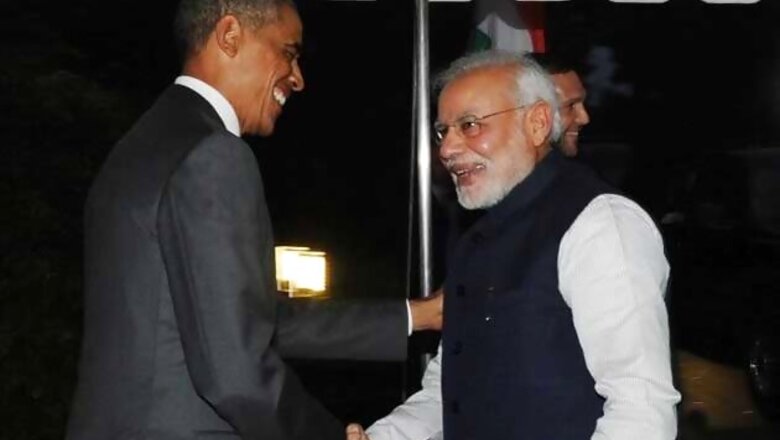
views
Atlanta: The political contrast couldn't be starker. The Obama presidency enters its last two years in office with opposition Republicans firmly in control of both chambers of Congress, even as Prime Minister Narendra Modi fine tunes the course of his eight-month old administration, still buoyed by one of the largest electoral mandates in recent Indian history.
Setting the politics aside, geopolitical, strategic and economic compulsions appear to be pushing the two leaders closer to each other, meaning that Obama's visit is being viewed as both symbolically and substantively important. Analysts in both countries say the odds may be getting better for a new, enhanced bilateral relationship, driven by business and trade deals, but a lot of hard work still remains.
The White House has set the stage for the India visit through a series of actions and meetings, telegraphing the importance of India to the Obama administration. The president's State of the Union address - known as SOTU to political reporters and pundits here-is normally delivered to the US Congress in late January or early February; this year, it was scheduled a few days earlier so that Obama could make it to India before January 26. Even the president's customary post-SOTU campaigns-style events in the American hinterland were restricted to just two days, and the largely domestic agenda highlighted in the speech will take a back seat, at least now, to the foreign policy focus of an overseas state visit.
In late July/early August, US Secretary of State John Kerry signaled a reset in the US-India relationship, with a visit to New Delhi that my colleague Ravi Agrawal wrote showed "clear signs of a rapprochement". Kerry was back in India earlier this month for the Vibrant Gujarat summit, where he spoke about the opportunity for trade and business, including in the areas of infrastructure, technology and green energy. The importance of Kerry's visit could be gauged from the fact that the top US diplomat stayed on in India, even as world leaders joined millions of people in France in a defiant march against terrorism following the attack on the satirical magazine Charlie Hebdo.
So will Obama's New Delhi visit be solely about optics, or will it be about real deal making?
"The symbolism facilitates the substantive issues," says Tanvi Madan, fellow and director of The India Project at the Brookings Institution in Washington. She notes that the Republic Day celebrations are a projection of India's soft and hard power; and the chance to host Obama at this high-profile event will draw attention to the values-based and people-based ties between the two giant democracies.
These days, the India-US relationship is the beneficiary of a steadily increasing momentum, one that began near the end of Bill Clinton's second term in office. Meetings between the countries' leaders have become increasingly more frequent. Just four months ago, Obama hosted Modi in the White House, a visit followed quickly by the invitation from New Delhi.
Like many things about the Indian prime minister's outreach efforts, that invitation became public in the form of a tweet that talked about having "a friend over... the 1st US President to grace the occasion as Chief Guest." The White House responded warmly in return, saying Obama would head to India to "meet the Prime Minister and Indian officials to strengthen and expand the US-India strategic partnership."
Historically, building that strategic relationship has been anything but easy, as Ashley Tellis of the Carnegie Endowment for International Peace writes. But this time, the Obama administration can rightfully say the relationship has never been better; after all, no other American president (not even arguably the most admired American leader in India, Bill Clinton) has visited New Delhi twice while in office.
For his part, Prime Minister Modi may be taking a multilateral approach in international relations, including meetings with the Russian and Chinese leadership. But he has also stated that he recognizes Washington as a "principal partner in the realization of India's rise". What's also not lost on South Asia watchers is that the United States is slowly but deliberately de-hyphenating the India-Pakistan-US equation in many areas.
In the final lap of his presidency, President Obama is expected to increasingly focus on foreign policy matters (including Cuba and Iran), given his limited ability to push through policies that a Republican-controlled Congress cares about. But he's also willing to look beyond: to economics and trade. The biggest applause from Republican lawmakers came when he talked about new trade agreements he wants to push through. Obama may be seeking to build on his legacy as the man who helped rescue the American economy. He could be increasingly reaching out to Prime Minister Modi for help in that regard.
 (Ram Ramgopal is Executive Editor, CNN at its Atlanta headquarters in the USA. He earlier worked as South Asia Correspondent of CNN based in New Delhi. He is also an authority on Asia and Middle East)
(Ram Ramgopal is Executive Editor, CNN at its Atlanta headquarters in the USA. He earlier worked as South Asia Correspondent of CNN based in New Delhi. He is also an authority on Asia and Middle East)













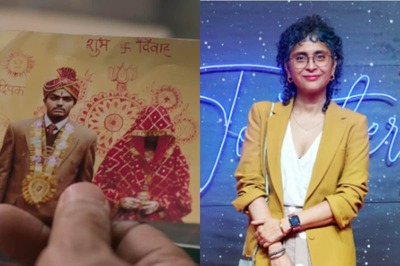
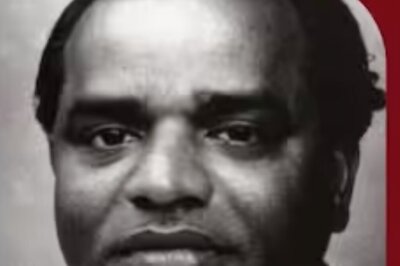

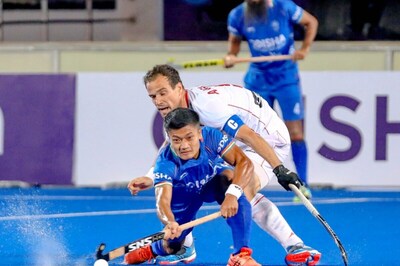

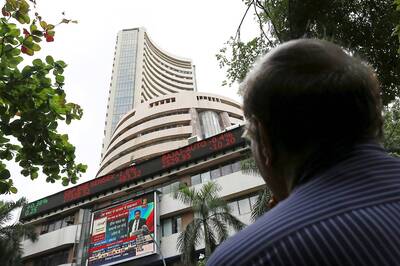
Comments
0 comment